In recent years Sri Lanka has caught the attention of the digital nomad community.
However, the avo-shaped country still raises a number of questions from hesitant nomads who are concerned about infrastructure, wifi availability - and safety.
After basing ourselves in Sri Lanka for a few months, we decided to write an in-depth digital nomad guide to address those questions and answer the question: is Sri Lanka a good digital nomad destination in 2023?
Is Sri Lanka’s Wifi Strong Enough For Remote Work?
First thing first - the elephant in the room... Sri Lanka's wifi. The biggest concern for most people planning to work remotely in Sri Lanka is the wifi situation.
Unfortunately, wifi strength and availability in Sri Lanka are behind what you'd find in destinations like Thailand and Indonesia. While wifi is a hurdle, it is still absolutely possible to get by in Sri Lanka as a digital nomad.
Using SIM Card Data
One strategy for getting stronger wifi in Sri Lanka is to use a local SIM card and pay for data as you go. These SIM cards are more reliable and mean you won't have other people on your network clogging up your bandwidth. While, in Sri Lanka terms, this can become costly to keep recharging, it's a small price to pay to have strong wifi connections to attend work meetings and get your job done.
When choosing a SIM card we tried both Dialog and Airtel (two of Sri Lanka's largest mobile companies). Since we had two options of data to use, we could shift between the two depending on which was strongest at the time - and yes, this varied considerably. There are also global wifi hotspot options like Solis Wifi. While I haven't personally used a global hotspot, it may be a good option for those who want a more solid wifi connection. You can use the GOROAM coupon to get 10% off too.
Visas and Extensions
Sri Lanka tourist visas or ETAs (Electric Travel Authorization) are granted prior to arrival for a small cost depending on your passport.
As Australian and US citizens we were both granted one-month tourist visas. We applied online through Sri Lanka's immigration website, which you can find here. However, our plan was to stay beyond a month, so we had to visit the immigration office and extend it shortly after arriving in Colombo.
*Note: You can extend your visa right away in Sri Lanka, you don't need to wait until it's close to expiring like in some other countries.
Extending A Tourist Visa in Sri Lanka
Extending your tourist visa has to be done in Colombo, so it makes sense to get this done while you're there if you're planning to spend most of your time outside the capital.
The visa extension process was confusing and long. The immigration office isn't open on weekends either, so if you work weekdays, expect to spend almost all day extending your visa. Pay attention to any Sri Lanka local holidays too, which could affect opening hours - we learned this the hard way and took a day off work to arrive to a closed office.
The immigration office felt like typical South Asia mayhem at times. Staff were generally pretty helpful and will point you in the right direction. Most of your time will be spent in waiting rooms, but there is a little shop in the main area to grab a coffee and a veggie roti.
The cost of extending a Sri Lankan visa depends on your passport. As an Australian, I paid $30, however, as an American, Ashley had to fork out $100 for hers.
In summary, extending visas in Sri Lanka can be an arduous affair, but the good news is it's all handled in a single day (if you arrive early) and you'll be able to leave a little weary, but with your passport in hand.
Finding Accommodation in Sri Lanka
Finding places to live in Sri Lanka is not as easy as Thailand and Bali. There are no "monthly rental" signs around and your best bet might be Airbnb for longer-term rentals. There are also some Facebook Groups floating around with some accommodation options.
We decided to base ourselves in Dickwella as it was a laidback beach town away from tourist hotspots like Mirrisa and Hikkaduwa. Dickwella is also home to Verse Collective, the modern coworking space we'd been hearing about, so it made sense for us. We're generally not fans of pre-booking accommodation as we like to view the home first, however, this was difficult in the town we chose to base, Dickwella. We eventually spoke to a local on the beach about our situation and he had a friend with a rental apartment, which we agreed to.
We lived in an apartment in The Mount House, which was a very basic Sri Lankan-style housing and extremely cheap. In fact, the most affordable long-term rental either of us has ever had. It was by no means fancy, but a good money-saver. It's also a perfect place for wildlife lovers, with cheeky monkeys visiting most mornings and curious peacocks passing by in the afternoons.
*Price haggling is common in Sri Lanka, so don't be afraid to negotiate on the price.
Getting Around Sri Lanka Independently
There are a few common modes of travel in Sri Lanka:
- Bus
- Taxi
- Tuk-tuk
- Train
- Motorbike
It's super easy to rely on locals to get you around, especially if you're located in a tourist hub or city. Even smaller towns have tuk-tuks so you'll never truly be stuck for a ride anywhere you go in Sri Lanka.
However, if you're looking to have your own means of transportation you can rent a motorbike or even your own tuk-tuk. For longer distances, we recommend public transport, especially as the roads in Sri Lanka can be quite dangerous.
Motorbike Rental Sri Lanka
Renting a scooter in Sri Lanka isn't as accessible as it is in places like Southeast Asia. You won't see a whole lot of motorbike rental shops and your best bet is renting from a hotel or guesthouse. Prices are also comparatively steep. In Dickwella, we paid 30,000 LKR ($160 USD) per month. If renting daily, you'll be paying more than $10 a day. Prices are likely more affordable in bigger towns.
*It is illegal to ride a motorbike without a helmet in Sri Lanka and police are strict on this. Helmet theft is common in Sri Lanka (yes, it happened to us).
Tuk-tuk Rental Sri Lanka
If you're planning to travel longer distances in Sri Lanka we highly recommend renting a tuk-tuk. Exploring Sri Lanka via tuk-tuk was the highlight of our time and provided us with the freedom to go off the beaten track and control our own schedule.
To legally rent a tuk-tuk you'll have to get a local driver's license, which is organized by the company TukTuk Rental who literally takes care of everything and makes it as easy as possible for you to get on the road. If you're interested in renting your own tuk-tuk, you can use this coupon GOROAM to get a discount on your own tuk-tuk.
Sri Lanka Cost of Living for Nomads
One of the biggest pros of basing yourself in Sri Lanka is the insanely cheap cost of living. In fact, you'll be hard-pressed to find another nomad destination with the affordability of Sri Lanka.
The cost of living, however, does depend on the town you choose to base in, the food you choose to eat, and the number of activities you choose to do. As a general rule, the more local you can keep your lifestyle, the cheaper Sri Lanka will be for you.
Our expenses
On average we were spending $500 USD per month. This was us eating out every meal, drinking, and doing some additional activities like visiting Udawalawe National Park.
We ate locally most meals with the occasional western-style vegan meal. Our breakfast would often cost between 0.30-070 cents at a small local restaurant we found tucked away in Dickwella.
We did budget on accommodation, but we had two rooms and a kitchen so we were generally happy.
Days off mostly consisted of drinks on the beach, scooter drives to nearby towns, surfing, and we did fork out on a couple of guest houses while we were out of town.
The breakdown below shows our cost of living while based in Dickwella, Sri Lanka. It does not include visas, flights, business expenses, or the tuk-tuk we rented to travel the country at the end of our time working in Sri Lanka.
Average Monthly Expense & Cost - Two-Person Breakdown
Rent: $330.00
Food: $300.00
Scooter & Gas: $170.00
Activities & Extras: $200.00
2 Person Total: $1000.00
Per Person: $500.00
*Prices are in USD
Local Sri Lankan Food
Sri Lankan food doesn't get the credit it deserves internationally. Perhaps, overshadowed by neighboring Indian food, Sri Lanka holds their own when it comes to incredible local food.
Sri Lankan food is primarily vegetarian and consists of daal and roti (similar to naan bread) and rice and curry. Sri Lanka is one of the most vegan-friendly countries on the planet, by the way (no wonder we loved it so much).
Food is often served buffet style, especially rice and curry. Despite its mundane name, Sri Lankan Rice and Curry is anything but boring. You'll be served more plates than your table can fit featuring a wide range of different curries commonly consisting of jackfruit, pineapple, daal, potato, and much more.
Breakfast is usually daal, coconut roti and string hoppers. It might take a little getting used to, but this style of breakfast became our absolute favorite.
Sri Lanka’s Best Digital Nomad Towns
Unfortunately, not everywhere in Sri Lanka is ready for digital nomads. However, there are a few places emerging which offer decent environments, community and infrastructure for remote workers.
1. Colombo
Good for:
- Most coworking options
- Cheapest cost of living
- Perfect for city-lovers
Bad for:
- Extremely busy and chaotic
- Noise and environmental pollution
- Peace and quiet
2. Dickwella/Hiriketiya
Good for:
- Serene beaches
- Surfing
- Small coworking scene
Bad for:
- Limited grocery shopping options
3. Nuwara Eliya
Good for:
- Clean mountain air
- Old European feel
- Cooler temperature
Bad for:
- Cold mornings and nights
- Expensive
4. Tangalle
Good for:
- Beaches
- Laidback feel
Bad for:
- Coworking
5. Mirissa/Welligama
Good for:
- Surfing
- Partying
- Whale watching
Bad for:
- Tourist crowds
- Sri Lankan culture
6. Galle
Good for:
- Live in a fort
- Cool architecture
Bad for:
- Expensive
- Tourist crowds
Coworking Spaces in Sri Lanka
Coworking spaces are slowly making their way into Sri Lanka, but they're not quite at the standards you might expect in other digital nomad hotspots.
Your best bet for a decent co-work space is Colombo, but there are some spaces located in smaller towns. For example, we worked from Verse Collective in Dickwella, which was a little gem of a place right opposite the beach.
Verse Collective, Dickwella
We worked most days from Verse Collective, a hip coworking space on the doorstep of Dickwella Beach.
Verse Collective has to be the coolest workspace we've worked from and what's more? It's free! Nothing beat taking a midday swim or walk along the beach to de-stress from work.
Coffee and meals here are relatively expensive, but hey, can't complain when you're getting a free workspace.
The biggest downside was the wifi speeds, which were disappointing. This was definitely made worse because we had 15 remote workers battling for bandwidth. Most of the time we stuck to our phone data, enjoying the facilities. The staff organizes weekly events and often works with local charities like Animal SOS Sri Lanka.
Overall, we do recommend Verse Collective as a workspace hub.
Reasons To Visit Sri Lanka
There's just so much to do in Sri Lanka that it's actually surprising. All the things to do are also so close to one another so it's extremely easy to pack in a full weekend or week hitting off these bucket list items.
1. The UNESCO World Heritage Sites
For such a small country, Sri Lanka has an incredible amount of beauty. The country is home to a whopping 8 UNESCO World Heritage Sites including the most famous Sigiriya Fortress to the ancient city of Anuradhapura. The best part is all the sites are super accessible for a long weekend away.
2. The Beaches
Sri Lanka is an island and has a coastline close to 1,000 miles (1,600 kilometers). Due to this, there are so many beautiful beaches to explore. The southern beaches tend to attract more tourism and people in general, while the east is a lot more secluded and serene.
3. The Food
Sri Lankan food is both delicious and super cheap. Often overshadowed by Indian food, Sri Lankan food serves up dishes like dal, rice and curry, and kottu. The country is extremely vegan-friendly and when we say cheap, we mean you can eat for less than a dollar if you eat locally and outside of major tourist towns like Ella.
4. The Hikes
Sri Lanka is small, but it's incredibly diverse in its landscape. You can be on the beach in the morning and up in the mountains in the afternoon. It is also known for its iconic pilgrimage to Adam's Peak, which requires waking up in the early hours of the night to climb to the top for sunrise. It is special and a must while in Sri Lanka.
5. The Tea
Sri Lanka is probably most famous for its tea - so you may as well take advantage of it and indulge in fresh Ceylon tea whenever you can.
6. The Festivals
Sri Lanka is home to many cultural festivals and celebrations throughout the year. The most famous of these is the Esala Perahera, a 10-day festival in Kandy that celebrates the tooth relic of the Buddha. The festival includes parades, processions, and traditional dance and music performances.
Local Attitudes Towards Foreigners
Sri Lankans might be the most friendly people on earth.
No matter where we were, local people were always extremely helpful and friendly. And generally, the more remote you go, the friendlier the locals.
There are instances where locals might try to take advantage of foreigners, but keep basic wits with and you won't encounter much of this.
Most Sri Lankan men are respectful towards western females and stares are usually innocent and curious.
Overall, Sri Lanka feels extremely safe and, as visitors, the locals make you feel right at home.
Sri Lanka for Digital Nomads: Pros and Cons
PROS
- Incredibly cheap cost of living
- Year-round high season
- Tight-knit co-working scene
- Delicious local food
- Endless natural attractions to explore on days off
CONS
- Slow wifi
- Lack of cafe-working scene
- Lack of western comforts
- Outside of Colombo, limited access to technical assistance
- Power outages common


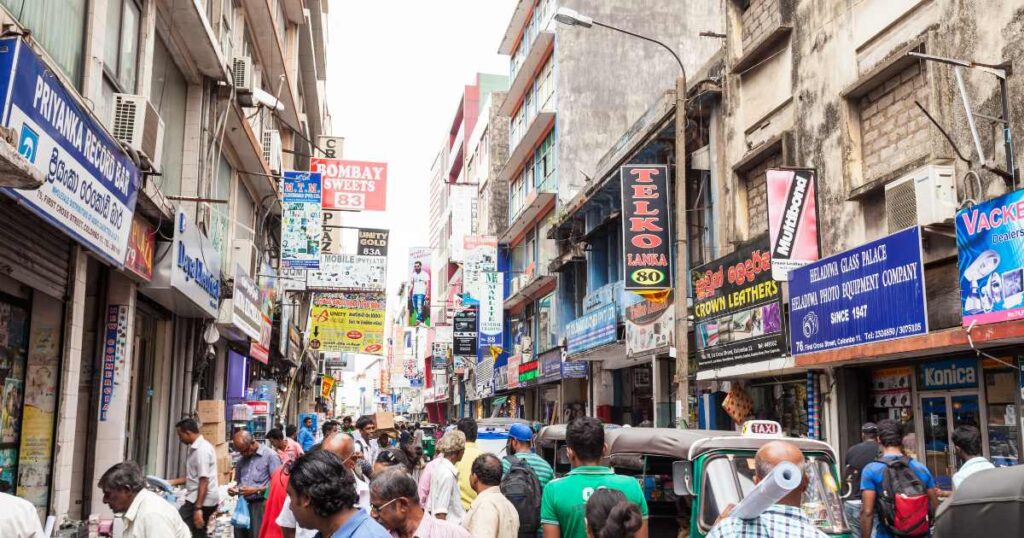
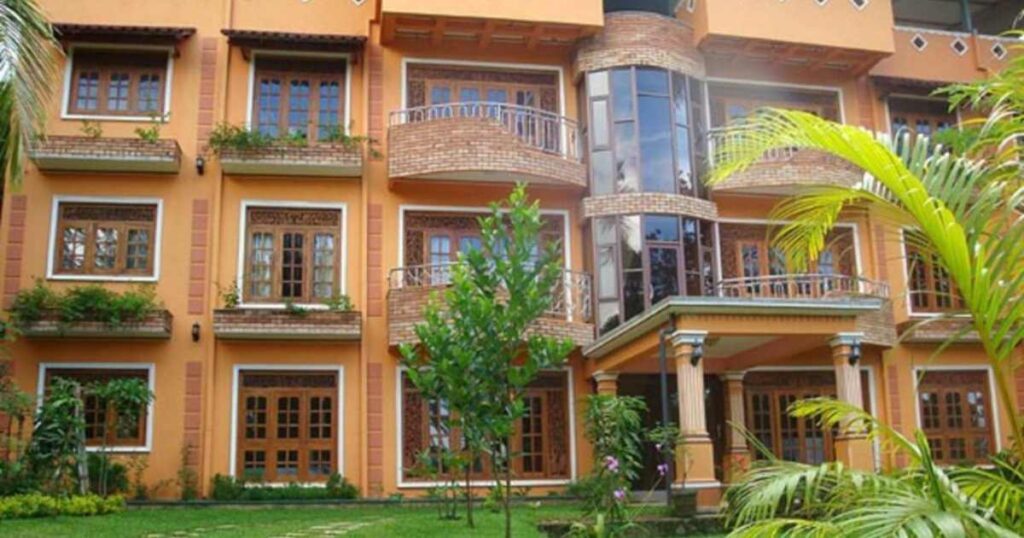
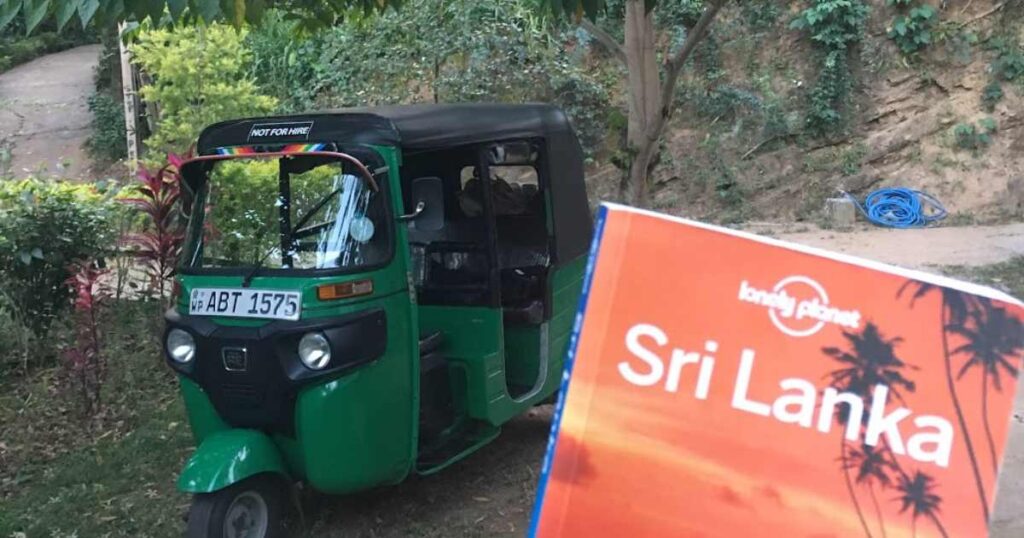
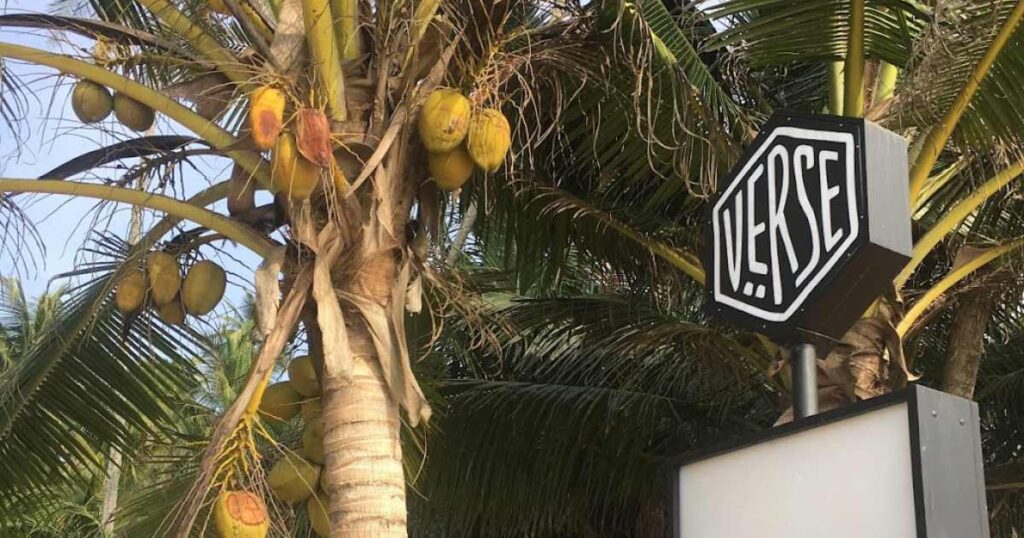
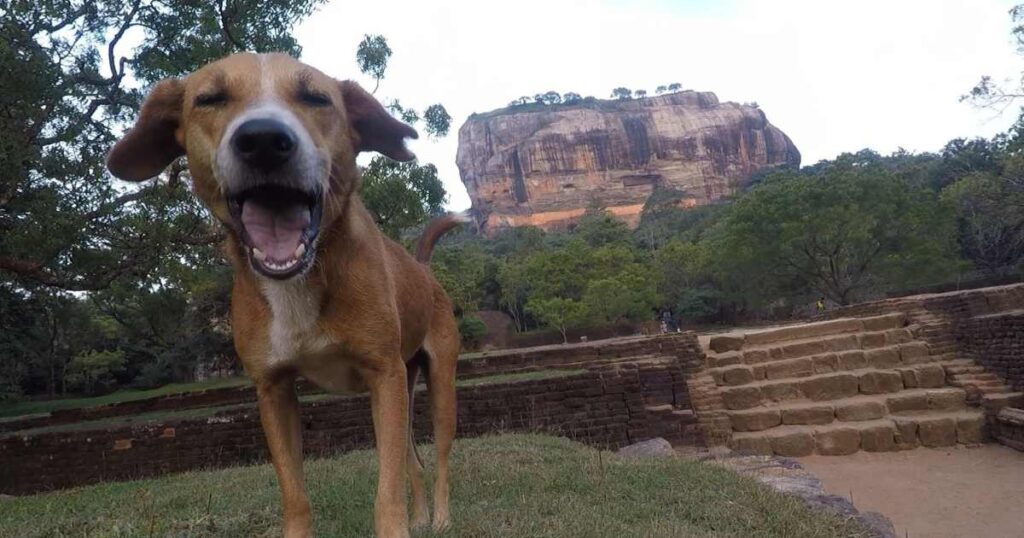



Feel like I know a little about Sri Lanka now. Thanks
You’re welcome. It’s such a fantastic country – Hope you get the chance to make it out there yourself.
Interesting take on the attitude towards foreigners. Most solo female travelers I met whilst in Lanka and elsewhere in SE Asia found it extremely uncomfortable dealing with men there. I guess it’s different when you’re rolling as a couple?
Personally as a male I found most locals friendly, maybe a little too friendly – a guide I used only for one day still texts me occasionally a year later. Lol. Great country though.
Thanks for your comment, Tony.
I think you’re onto something in regards to SL being different for women in a couple than solo, however, generally I felt more respect from local men in Sri Lanka than in India overall when it came to respecting women,
I think a big part of it came from the fact we were based in a very local area. When we were in more tourist-dense places like Negombo, there definitely seemed to be more of a seedy undertone.
I also have Sri Lankan acquaintances who still message me random check-ups, haha.
Totally a fantastic and interesting country.
Great tips and thanks for sharing your experiences living as DN in SL.
One question – in terms of workout facilities, did you guys encounter any gym locations? This is a odd one, but we are in Bali and considering moving to other locations because our emergency stay permit is expiring. And if you been to Bali, Canggu has a massive crossfit community and plenty of gyms around, just want to know if there’s such a community in SL.
Hey Bernard,
Thanks for your comment. The gym culture in Sri Lanka is nothing like in Bali, unfortunately.
You will find some gyms in the main city, Colombo, but in my opinion, Colombo isn’t the reason DNs visit Sri Lanka, and you’ll either want to head to the southern beaches or mountains.
In Dickwella there were no gyms, so we made do with home workouts. You might find luck in Mirissa or Ella, which are big tourist hubs.
I hope that helps!
Like!! Really appreciate you sharing this blog post.Really thank you! Keep writing.